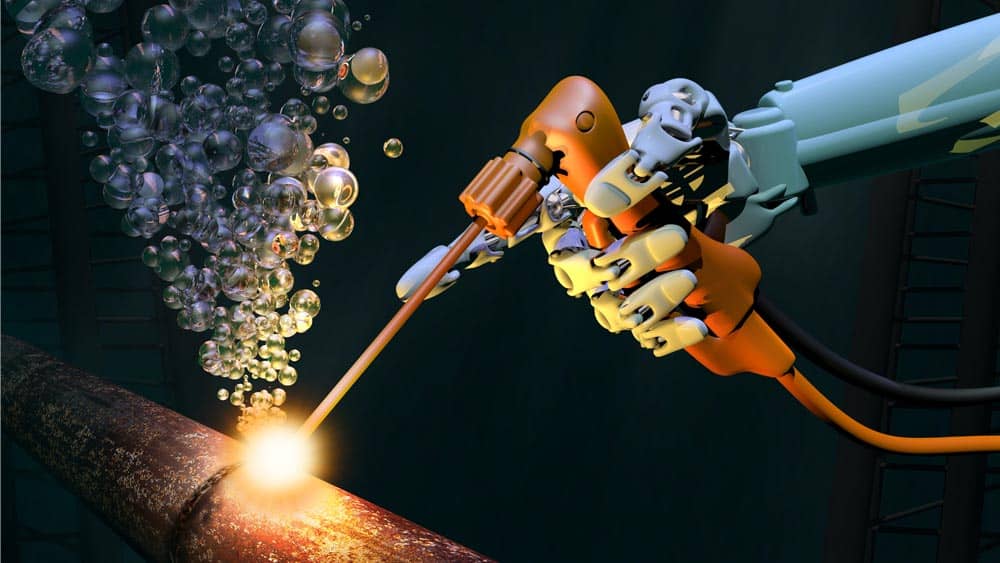Underwater welding is among the most popular jobs available to graduates from commercial diving school. Underwater welders work mainly in the gas and oil industries.
They are always responsible for carrying out dangerous tasks such as repairing dams, ships, pipelines, underwater habitats, and offshore oil drilling gas.
There is an increasing demand for underwater welders worldwide. The increase is due to the rise in maintaining and repairing oil rigs and other massive marine equipment.
Although the field is amongst the highest paying in the world, it is quite dangerous. Recent research findings reveal up to 11 divers die every year. There are around 6,500 in the field, which translates to about 0.17% or 1.7 deaths in every 1000 underwater welders.
Find out how to become an underwater welder if you are thinking about following this career path.
Underwater Welder Certification Requirements
Training, experience, and proof of skills are mandatory for any person interested in getting a job as an underwater welder. An underwater welder will have to possess commercial diving skills, underwater welding skills, and surface welder skills.
Before you register for a commercial diving and welding class, provide your high school diploma or GED certification. The certification will help ascertain that you have attained the minimum education requirements. When through with your education, you will have to gain experience as you prepare to take your certification tests.
In the United States, the American Welding Society, the American Petroleum Institute, and the American Society of Mechanical Engineers are set the welding certification standards.
To help in building your welding knowledge and excellent techniques, seek guidance from a certified welding expert.
Consider training as an apprentice to gain the necessary skills and safety measures required to succeed in different welding conditions.
Subsequently, you seek to achieve the commercial diving certification after you have gained the requisite welding experience.
Ensure you register in a school with knowledgeable and skillful instructors. The instructors should have a good reputation, use the right equipment, and offer quality training. It will take up approximately 2 months to complete a diving certification course.
In most cases, you will always get certification through the firm you are working for. Since there are no state boards, the particulars will vary widely. To ensure everyone is safe, they will always ensure that you stick to the right standards.
Special Skills Required for Certification in Underwater Welding
There are two types of underwater welding.
- Wet underwater welding: Here, you will have to work on the welding directly while inside the water.
- Dry underwater welding: This involves working in a dry enclosure within the chamber that contains pressurized air.
Most potential employers will always go for someone who is certified under the AWS D3.6M Underwater Welding Code requirements.
It will prove that you are proficient in both dry and wet underwater welding when you have these requirements. To land a better job after receiving certification, extra qualifications like AWS or BS welding knowledge and mechanical skills will be of great help.
It is also advisable that you aim to get essential skills to ensure you get ahead of your career by standing out from the rest.
Skills like underwater cutting, rigging, and fitting, non-destructive cutting, inspection, underwater photography, and drafting have a close relationship with underwater welding.
The diving contractors will always hire you when you have the right qualifications to help with pre-job planning. When you can cut, clean, rig, install and fit the sections that need welding, you will be of great importance to the company.
You can consider getting certifications in underwater and surface construction equipment like non-destructive testing and remote vehicles.
How Long Does the Entire Process Take?
It is impossible to be a top underwater welder overnight. You will need time to undergo training, practice, and experience to develop into a top-notch underwater welder. After high school level, you will need to register for a few courses.
When you have time, some welding certifications, which should not be that difficult after some experience in the field. Attend some swimming and scuba training and do this in advance when you enter the diving school.
The mileage will always depend on the amount of training you receive. However, it is highly recommended that you spare at least one year for this training phase. It is possible to earn open water certification during this period.
Enroll in a legit commercial driving school where you will earn the diving certification. It will take you approximately two months for the certificate. You will have to work as a tender for two years after your graduation.
Afterward, do underwater welding certification. Depending on the type of school you register at, underwater welding training can take a minimum of six months and at most two years.
After receiving your underwater welding certification together with many specializations, you will be ready to kick start your career as an underwater welder.
Always do it much faster, although the time frame we have issues with here will be enough to enable you to develop and be competent in the field.
Age Limitations of a Welder Diver
Currently, there is no age restriction for commercial welder divers. However, it is highly recommended and required that all commercial divers be subjected to a yearly physical test before their licenses can be renewed.
Conclusion
For sure, becoming a certified underwater welder is not that easy and requires lots of determination, commitment, and patience.
However, the job can be gratifying when you complete your training and certifications.
Now you know how to become an underwater welder and the steps and time length necessary for joining the trade.
Remember, you will always need welding experience and certifications after completing your high school diploma.
We wish you all the best for those starting and those with lots of experience in welding.

